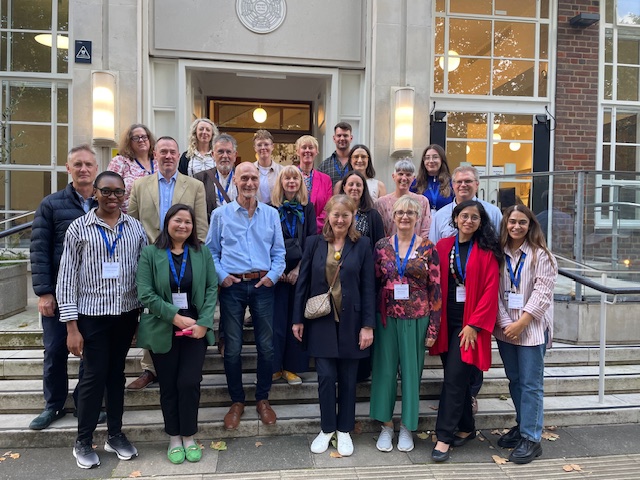
Exploring new ways to capture the value of cultural and artistic interventions in knowledge exchange between universities, business and communities
The Policy Evidence Unit for University Commercialisation and Innovation (UCI), working with the National Centre for Academic and Cultural Exchange (NCACE), brought together leading voices from across the cultural and higher education sectors for a workshop at the Warburg Institute, University of London. The session formed part of UCI’s ongoing collaboration with Research England, led by Tomas Coates Ulrichsen and Valeria Ramirez, to develop a modern framework for measuring knowledge exchange (KE).
The event provided a rare opportunity for prestigious institutions and practitioners to explore, collectively, how the distinct value of arts and culture might be better evidenced in national KE frameworks.
The workshop brought together colleagues from some of the UK’s most prestigious cultural and academic institutions, including the Royal College of Art, Royal Academy of Music, Royal College of Music, Guildhall School of Music & Drama, and the Royal Central School of Speech and Drama, alongside University of the Arts London and King’s College Culture.
The conversation was further enriched by contributions from Cardiff University, the University of Leicester, the University of Huddersfield, the University of Sheffield, Arts Council England, Research England and Jisc-HESA and the School of Advanced Study. Their perspectives underlined the breadth of the challenge and the importance of capturing value across different institutional contexts.
Several priority areas were explored:
- Local regeneration: considering how cultural interventions attract investment, strengthen partnerships, and build community resilience, with opportunities to link to social value and liveability indices.
- Knowledge exchange in progress: examining how knowledge assets and networks evolve, and how their lifecycles and outcomes can be better represented.
- Audience metrics and behavioural change: measuring how participation supports wellbeing, health outcomes, and sustainable behaviours, with a call to establish conventions for recognising transformative engagement.
- Consultancy: recognising the role of freelancers and academics, and the need for a typology to reflect the diversity of consultancy activities and impacts.
By tackling these questions collaboratively, the workshop advanced the conversation on strengthening knowledge exchange metrics and ensuring that the contributions of arts and culture are properly captured in national frameworks.









